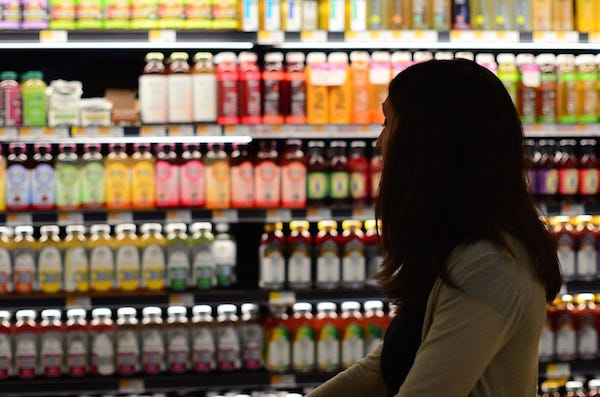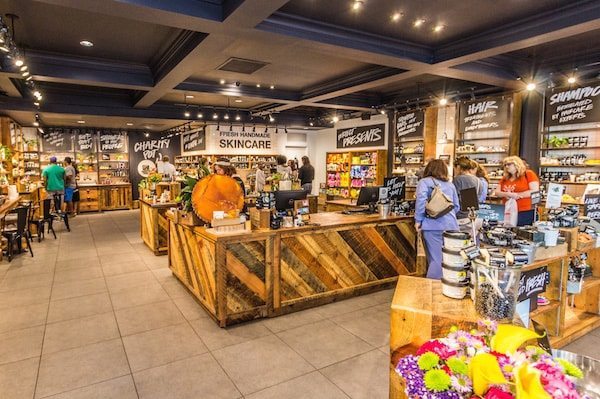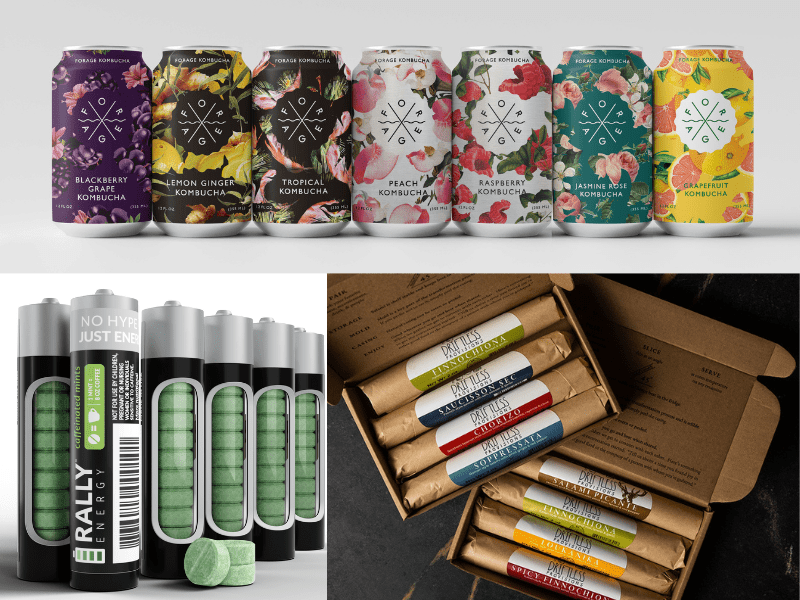It’s been a minute since we’ve talked about cash flow. Well, OK, we’re always talking about cash flow at least tangentially because it’s so critical for business survival. But after focusing heavily on cash flow early in the pandemic to help entrepreneurs navigate the chaos, we haven’t devoted a newsletter to it in a while. Now with Simple Goodness Sisters sharing their winning cash-flow strategy on the latest Edible-Alpha® podcast, we figured it’s the perfect time to dig back in.
Cash flow, in the simplest terms, means the money moving in and out of a business. Though it’s related to profit-and-loss, it’s not the same thing. Tracking cash flow also requires knowing exactly when funds flow in and out the door, which then tells a company exactly how much money it has on hand at any given time.
To say that this is important is an understatement. In fact, of the countless determinants of a food or farm business’s success—product quality, price, differentiation, market demand, solid branding, consumer awareness, etc.—managing and forecasting cash flow may be the most crucial. If a company doesn’t know how much cash it possesses right now—or how much it expects to have in the near future—then its money could easily run out, potentially tanking the entire business.
On the flip side, when a company does keep taps on cash flow, it always has an idea of where the business stands financially. This information can then guide business decisions by showing them when and where they can afford to spend, when and where they need to tighten up, and when and where in their operations or payment schedules they can look to free up money. Cash flow data can also signal when it might be time to seek additional financing.
Managing cash flow might seem complicated, but any food or farm entrepreneur can—and should—do it. FFI breaks it all down in our bootcamps and other trainings, and we offer a free 13-week rolling cash flow template online. Our on-demand course Deep Dive: 13-Week Rolling Cash Flow: Forecast and Debt teaches businesses how to use the template.
It was through an FFI training course that Belinda Kelly and Venise Cunningham realized Simple Goodness Sisters had a real cash flow problem. Their diversified business, which includes a retail and wholesale line of small-batch simple syrups, e-commerce sales, a farm, and a brick-and-mortar soda shop, is very seasonal. Therefore, their business is extremely heavy in Q3 and Q4 and very light in Q1 and Q2 when all of their production costs go out.
Knowing they needed a way to bring in regular, predictable income, Belinda and Venise launched Cocktail Farm Club, a bimonthly subscription box service in early 2021. The idea was a hit, and the club keeps growing, giving the sisters a steady revenue stream and making it much easier to manage and forecast cash flow.
Does your business have a firm grip on cash flow? Got questions about tracking and forecasting? FFI is here to help, so please explore our resources and reach out!
Belinda Kelly and Venise Cunningham are pursuing their entrepreneurial dreams with Simple Goodness Sisters, a multipronged business centered around their handcrafted simple syrups. Showcasing ingredients from Venise’s farm and other local producers, the syrups are in hot demand at retail, online, and in their own Simple Goodness Soda Shop. Catch the sisters’ inspiring story on building a dynamic company and growing it to the next level.

And now, our roundup of the best food and beverage finance news, events and resources from around the web…

Business Model Insights
- Tapping into Today’s Top Talent (Food Industry Executive)
To attract and retain top talent in this environment, food companies must be strategic in positioning job opportunities, which requires understanding what today’s workforce is looking for. - Founders don’t get ducks, just roosters (The Intertwine Group)
- Could declining product categories find growth in the corner store? (NielsenIQ)

Raising Capital
- What Business Owners Should Know Before Bootstrapping (Forbes)
Self-funding a company is not for the faint of heart. It can yield countless rewards but also be physically, financially, mentally, emotionally, and morally crushing. Here’s what to know going in. - Farmers can now grow fruits, vegetables and carbon credits (GreenBiz)
- Who will write me a check? (The Intertwine Group)

CPG/National Brands
- What consumers want from your products. Hint: to meet their needs state (NielsenIQ)
Brands can learn how to tap into consumers’ hearts, minds, and wallets by using data that reveals the attributes that inspire them most, as well as how these shoppers buy across an omnichannel landscape. - The Evolving Alcoholic Beverage Market Requires a Different CPG Mindset (Food Industry Executive)
- Smaller brands’ path to consumer loyalty lies through differentiation (Food Dive)

Market Trends
- What consumers want from your products. Hint: to meet their needs state (NielsenIQ)
Brands can learn how to tap into consumers’ hearts, minds, and wallets by using data that reveals the attributes that inspire them most, as well as how these shoppers buy across an omnichannel landscape. - The Evolving Alcoholic Beverage Market Requires a Different CPG Mindset (Food Industry Executive)
- Smaller brands’ path to consumer loyalty lies through differentiation (Food Dive)

Farming and AgTech
- Carbon sequestration: does it hold the key to reducing emissions from dairy farms? (DairyReporter)
A groundbreaking new study shows for the first time precisely how much carbon sequestration can reduce emissions from organic dairy farms. - USDA Invests $300 Million to Help Farmers Transition to Organic Production (Modern Farmer)
- Are Criollo Cattle a Regenerative Solution to a 1,200-Year Megadrought? (Civil Eats)

Deals/M&A
- Carbon sequestration: does it hold the key to reducing emissions from dairy farms? (DairyReporter)
A groundbreaking new study shows for the first time precisely how much carbon sequestration can reduce emissions from organic dairy farms. - USDA Invests $300 Million to Help Farmers Transition to Organic Production (Modern Farmer)
- Are Criollo Cattle a Regenerative Solution to a 1,200-Year Megadrought? (Civil Eats)

Industry Events
Virtual events:
- Aptean Food and Beverage Symposium: 9/13
- WWBIC/FaB Wisconsin Training Session: Specialty Foods: Get Your Product on a Shelf: 9/19
- Edible-Alpha® Immersion Training: Managing Uncertainty: Scenario Planning: 9/19–9/29
- Refrigerated Foods Association Virtual Fall Symposium: 9/20–9/21
- FFI Investing in the Future of Food: 9/21 (hybrid event)
- WWBIC/FaB Wisconsin Training Session: Food Halls and Markets: 9/26
- The Land Connection: Grow Your Farm Business: Launch Your Cottage Food Or Value-Added Enterprise: 10/6–11/17
- FFI October Quarterly Trends Talk: 10/10
- Edible-Alpha® Immersion Training: Farm Financial Management Bootcamp: 11/15
- Wisconsin Women’s Business Initiative Corporation Annual Convention Training Session: Manufacturing Resiliency: 12/3
In-person events:
- Food Automation and Manufacturing Symposium and Expo: 9/11–9/14 in Miami, FL
- Americas Food & Beverage Show: 9/12–9/13 in Miami, FL
- Midwest Mechanical Weed Control Field Day: 9/14 in Benton Harbor, MI
- Marbleseed Field Day: Urban Growers Collective Farm Tours: 9/17 in Chicago, IL
- International Baking Industry Exposition: 9/17–9/21 in Las Vegas, NV
- FFI Investing in the Future of Food: 9/21 in Madison, WI
- Soil Health Academy School: Transformational Dairying: 9/26–9/28 in Kinzers, PA
- Natural Products Expo East: 9/28–10/1 in Philadelphia, PA
- White Label World Expo: 9/29–9/30 in New York, NY
- World Dairy Expo: 10/2–10/7 in Madison, WI
- Regenerative Food Systems Investment Forum: 10/12–10/13
- Rodale Institute Regenerative Healthcare Conference: 10/16–10/19 in Kutztown, PA
- Food Safety Consortium Conference and Expo: 10/19–10/21 in Parsippany, NJ
- PACK EXPO International: 10/23–10/26 in Chicago, IL
- Rodale Institute Southeast Organic Center Field Day: 10/26 in Chattahoochee Hills, GA
- Global Produce and Floral Show: 10/27–10/29 in Orlando, FL
- Accessing New Markets Through Distribution Field Day: 10/28 in Urbana, IL
- New Farmer U: 10/28–10/29 in Urbana, IL
- Poultry Tech Summit: 10/30–11/1 in Atlanta, GA
- SupplySide West/Food ingredients North America: 10/31–11/4 in Las Vegas, NV
- American Food Manufacturing Summit: 11/8–11/9 in Chicago, IL

